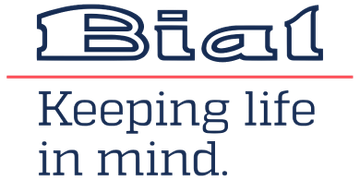The complexities of shared decision-making in Parkinson’s: Parkinson's Cutting Edge Science conference 2022
Event reportsOur Parkinson's Cutting Edge Science conference this year, chaired by Dr Emily Henderson, was attended by over 170 Parkinson's specialists spanning Neurology, Old age psychiatry, and Medicine for the elderly, with nurses, therapists and consultants discussing and debating nuanced aspects of Parkinson's treatment, management and care. Each week, we will take a closer look at one of the brilliant sessions.
Parkinson's nurse advanced practitioner Jane Price explored the complexities of shared decision-making in Parkinson’s.
Jane outlined the current guidance around shared-decision making, beginning with 'No decision about me without me' (2012) through to the more recent guidance from NICE last year around having champions in shared-decision making (2021) from board level, down.
Various decision-aids exist but Jane was clear that it is important to use the right ones,in the right place and within the right context: essentially, tailoring these to the individual. She noted the need to tailor information to the individual's needs as well, in a way which they can understand and engage with.
Discussing the 'triad of shared-decision making': the patient themselves, their Parkinson's team, and evidence-based practice, Jane noted the addition of a fourth dimension - continuous data gathered through wearables and other digital methods. She also noted the importance of involvement in research and finding ways around challenges like rural living or accessibility, saying that 'where there's a will, there's a way'.
She talked about the complexities of decision-making, the different influencers which may affect how decisions are made and how much input each element in that 'triad' or 'quad' may need to bring depending on the individual (Titova 2017).

Figure detailing overview of Titova 2017: Personalised medicine in Parkinson's
Highlighting how people with Parkinson's have reported their involvement in their choices and care decisions, Jane reflected on the 2019 Parkinson's audit. Noting the results, she shared that there were a large number of people who did not feel they had enough information at diagnosis or about new mediations. Whilst almost half of respondents felt they were always involved in decisions, that meant that just over half did not find this was always the case, which highlights room for improvement.

Figure: Parkinson's Excellence Network: 2019 Parkinson's Audit
Jane noted the facilitators and barriers to good shared-decision making, being clear that the level of perceived choice and the amount of time a person is given to make a decision are both important. Too little time can result in a rushed or disempowered choice, whilst an open-ended discussion may leave the patient unsure when they can act on the choice they wish to make. She highlighted the importance of a therapeutic relationship with the healthcare professional as being at the heart of open discussions and respectful decision-making.

Figure: Slide from Jane's presentation. Shared decision-making means:
She finished with some case studies which really exemplified the importance of shared-decision making and highlighted how challenging this can be at times.
- Her first case study considered a woman who felt very strongly about not taking medication, for as long as possible. Jane noted the importance of ensuring that there was good listening on the part of the health professional, plenty of clear information to the patient, clear capacity and constant revisiting of the choice to keep it open.
- The next case was around hypersexuality in a woman and making choices around some medication to reduce ropinirole and to address the impulse-control disorder.
- Her final case study was about a gentleman who seemed to be a good candidate for apomorphine but who was very reluctant. Jane noted the use of a PKG to monitor his Parkinson's and the positive impact that being able to see his results had on his choices. She also highlighted the importance of asking the right questions.
Noting the recent NHS campaign, Jane shared three questions that we need to be ensuring patients know they can ask:
- What are my options?
- What are the pros and cons of each option for me?
- How do I get support to help me make a decision that is right for me?
There are resources online to download around these questions, to use in clinics or use with patients ahead of an appointment to help frame their thoughts and ensure they know they can ask.
Finally and by way of conclusion, Jane shared some simple steps to ensuring that timely and appropriate information is given from diagnosis onwards and that the individual always feels they are being listened to, whether through good communication techniques like reflecting back, or ensuring they are copied into all correspondence.
Highlighting the new Parkinson's audit taking place this year, she gave encouragement that, by considering these elements in daily practice, the results of the audit may reflect more people feeling listened to, and 'always' involved in decisions about their treatment and care. These steps, she said, lead naturally to shared decision-making in professional-patient relationships.

Figure: Steps to shared-decision making - from diagnosis onwards

This meeting is designed and delivered by the Parkinson’s Academy and sponsored by BIAL Pharma. The sponsor has had no input into the educational content of this meeting.
Related articles
'The things you can't get from the books'
Parkinson's Academy, our original and longest running Academy, houses 23 years of inspirational projects, resources, and evidence for improving outcomes for people with Parkinson's. The Academy has a truly collegiate feel and prides itself on delivering 'the things you can't get from books' - a practical learning model which inspires all Neurology Academy courses.


